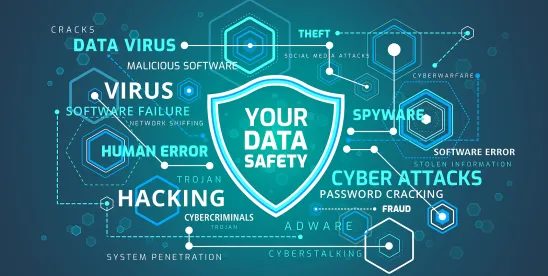Employee security awareness training is a best practice and a “reasonable safeguard” for protecting the privacy and security of an organization’s sensitive data. The list of data privacy and cybersecurity laws mandating employee data protection training continues to grow and now includes the EU AI Act. The following list is a high-level sample of employee training obligations.
EU AI Act. Effective February 2, 2025, Article 4 of the Act requires that all providers and deployers of AI models or systems must ensure their workforce is “AI literate”. This means training workforce members to achieve a sufficient level of AI literacy considering various factors such as the intended use of the AI system. Training should incorporate privacy and security awareness given the potential risks. Notably, the Act applies broadly and has extraterritorial reach. As a result, this training obligation may apply to organizations including but not limited to:
- providers placing on the market or putting into service AI systems or placing on the market general-purpose AI models in the Union, irrespective of whether those providers are established or located within the Union or in a third country (e.g., U.S.);
- deployers of AI systems that have their place of establishment or are located within the Union; and
- providers and deployers of AI systems that have their place of establishment or are located in a third country (e.g., U.S.), where the output produced by the AI system is used in the Union.
California Consumer Privacy Act, as amended (CCPA). Cal. Code Regs. Tit. 11 sec. 7100 requires that all individuals responsible for the business’s compliance with the CCPA, or involved in handling consumer inquiries about the business’s information practices, must be informed of all of the requirements in the CCPA including how to direct consumers to exercise their rights under the CCPA. Under the CCPA, “consumer” means a California resident and includes employees, job applicants and individuals whose personal data is collected in the business to business context.
HIPAA. Under HIPAA, a covered entity or business associate must provide HIPAA privacy training as well as security awareness training to all workforce members. Note that this training requirement may apply to employers in their role as a plan sponsor of a self-insured health plan.
Massachusetts WISP law (201 CMR 17.03 201). Organizations that own or license personal information about a resident of the Commonwealth are subject to a duty to protect that information. This duty includes implementing a written information security program that addresses ongoing employee training.
23 NYCRR 500. The New York Department of Financial Services’ cybersecurity requirement for financial services companies requires that covered entities provide cybersecurity personnel with cybersecurity updates and sufficient training to address relevant cybersecurity risks.
Gramm-Leach-Bliley Act and the Safeguards Rule. The Safeguards Rule requires covered financial institutions to implement a written information security program to safeguard non-public information. The program must include employee security awareness training. In 2023, the FTC expanded the definition of financial institutions to include additional industries such as automotive dealerships and retailers that process financial transactions.
EU General Data Protection Regulation (“EU GDPR”). Under Art. 39 of the EU GDPR, the tasks of a Data Protection Officer include training staff involved in the organization’s data processing activities.
In addition to the above, there are express or implied security awareness training obligations in numerous other laws and regulations including certain Department of Homeland Security contractors, licensees under state insurance laws modelled on the NAIC Insurance Data Security Model Law, and organizations that process payments via credit cards in accordance with PCI DSS.
Whether mandated by law or implemented as a best practice, ongoing employee privacy and security training plays a key role in safeguarding an organization’s sensitive data. Responsibility for protecting data is no longer the sole province of IT professionals. All workforce members with access to the organization’s sensitive data and information systems share that responsibility. And various stakeholders, including HR professionals, play a vital role in supporting that training.




 />i
/>i

